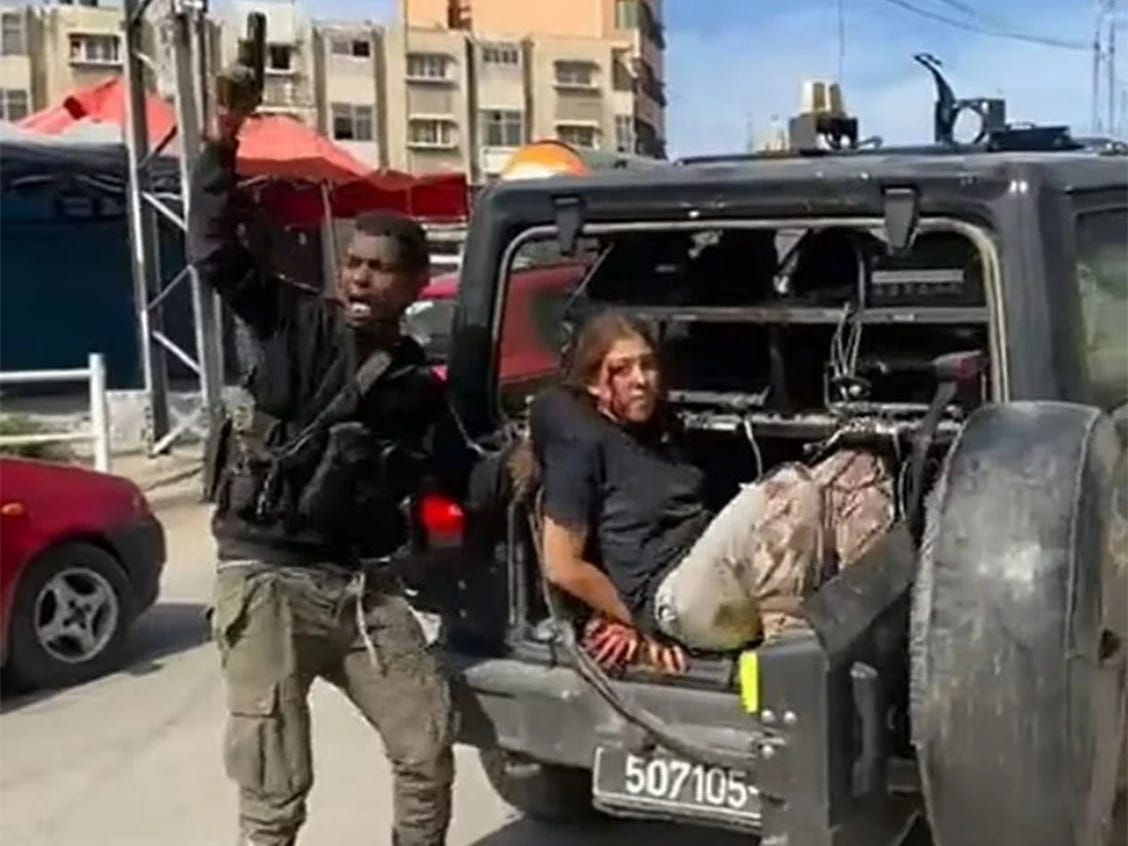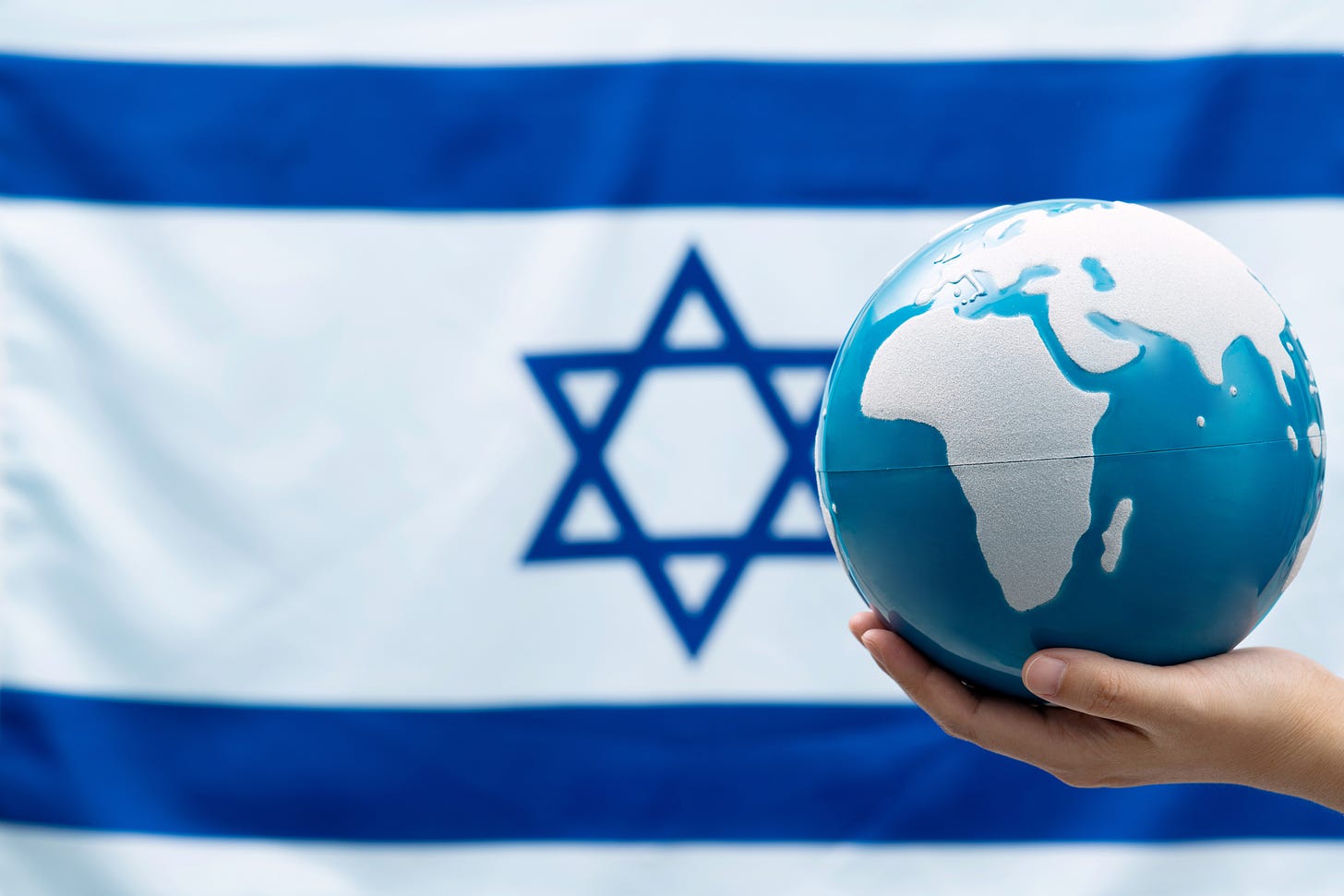The Devastation of "But"
Words hurt, that we know. It's time to choose them carefully, even if it means sitting with our pain.
By Leah Eichler

It started with a video of a girl who had been raped.
A day after Hamas terrorists stormed the villages in Southern Israel on October 7, killing 1400 people and kidnapping over 200, I found myself mindlessly scrolling through Instagram. I felt temporarily soothed by the support I saw in my feed; many people railing against the atrocities.
Then I saw her. She wore sweatpants that were bloody. Armed terrorists ordered her out of the back of a truck. Her arms were tied. Her facial expression blared her shock. She moved slowly, very careful to follow commands as she was being ordered to move into the backseat of a jeep, a man joining in beside her. Hollering could be heard.
“Jewish geography” is a real thing. We make up less than 0.2 percent of the world’s population. So even if I don’t know this girl, I know her. That night I barely slept. Nor the next. Her expression haunted me. I wanted what I had seen to be an act of media manipulation; I wanted it to be a fabrication of war. Yet the clip tragically appears to be true. As do so many others.
I have always said that I’m a woman first and a Jew second. It’s scary enough just to be a woman most of the time, but now feeling the full combination of these two identities is overwhelming. I’m sad, like so many, and I want to share this deep sadness with others, so that in our collective grief, we – other women, other Jews, or just other human beings – can bring comfort to each other.
But.
There’s a but right now; in fact there are several. And lately, it’s those buts that hurt me the most. It’s challenging to have one’s terror only acknowledged with a but. If I’m being honest, each time I hear the word, my body recoils in physical pain.
“But what did they expect?”
I’ve heard people say things along the lines of: “Israelis shouldn’t be surprised by the attack.” As a lifelong feminist, this sounds like, “they were in the wrong place at the wrong time and asking for it.” It brings me back to the era of SlutWalks and Take Back the Night. That but also hides a different, even more sinister message: That there are no civilians in Israel, and any attack, regardless of how horrific, is a legitimate act of war.
“But what about the women and girls in Gaza?”
Yes! Of course, I cry for them too. Do I need to explain that killing children is wrong, anywhere? Do I need to articulate that no one should kill children in order to protect their own, as Nicholas Kristof so eloquently put it? Do I need to qualify my sadness?
Yes, I’m devastated by the carnage in Gaza. Yet I don’t understand why we — and by “we” I mean those of us eager to find an end to the violence — why can’t we find a way to be sad together, not at each other?
“But didn’t they deserve it?”
As a Jewish woman that has always identified closely with the left, this one is the ultimate but. This but is often spoken in code, filling the air when the stories of the tragedies remain notably absent from the wider conversation about the war between Israel and Gaza.
Yes, oppressive living conditions have existed in Gaza and the West Bank for years. Yes, many innocent civilians are being killed. But this but places all responsibility at the feet of the Israeli government. It also puts Jews immediately on the defensive.
I refuse to fall into that trap, outside of acknowledging that Israeli politics are complicated – as is the case in all democracies – and there are a whole lot of Jewish people both in Israel and the Diaspora who vehemently oppose the Benjamin Netanyahu government.
But the real answer to that but is a simple counter-question: If Hamas terrorists truly had the Palestinians’ best future interests in mind, would raping and killing women and children be the way to bring about any possibility of meaningful change?
Dialing It Down
I readily concede that right now, worrying about what words to use might be impossible for those whose family members were horrifically murdered, or are currently being held hostage. I can’t even imagine the trauma they are suffering through.
But I do think the rest of us can choose the way we talk about it, keeping in mind that “Palestinians mourn their dead and hate their killers just as much and as fiercely as Israelis do,” as Ezra Klein said in his podcast for The New York Times.
Personally, I’m practicing the habit of sitting in my discomfort and trying to understand that other people’s words also come from a place of pain.
On that note, I found Rabbi Danya’s article, “a lot of things are true,” to be incredibly useful. I could highlight so many nuggets of wisdom from her post, but I’ll limit it to two:
“We can refuse to root for the safety and lives and rights of human beings like they are sports teams.”
And:
“At the end of the day, everyone must be safe, free and allowed to flourish, because everyone is holy, created in the image of the divine.”
I’ll take it one step further. In our faith, not only are people holy – words are too. According to Jewish mysticism, the creation of the world came through language. It should not come as a surprise that language can destroy it, too.
Leah Eichler is an author, essayist and publisher of Esoterica Magazine. She's currently working on a blended memoir about contemporary Jewish identity and the legacy of the Holocaust.
JEWDICIOUS subscriptions to all content from our “Original 18” are FREE till the end of 2023!
From unpacking history and politics to navigating the nuances of family and personal relationships to finding the human angle on sports and entertainment — plus our unsparing take on what’s happening in the Jewish world — the canvas at JEWDICIOUS is limitless! JOIN US!!





“Yet I don’t understand why we — and by “we” I mean those of us eager to find an end to the violence — why can’t we find a way to be sad together, not at each other?”
As a Jewish person, I have spent a lot of time also thinking on this question. We hear “but” from somebody else and it feels like we are being punched in the stomach - our world shrinks in around us when we hear that “but” (as you beautifully wrote).
The trauma of the Holocaust, of decades of subsequent conflict, and the pain of the Jewish people still lives inside of us - when we hear “but” that pain rises up in us. Yet, what are we supposed to do when the “but...” is also true? Do other people owe us the patience to navigate our trauma while a right-wing Israeli government perpetuates human rights violations? Do the atrocities committed by Hamas, as terrible as they are, alter or justify the fundamental power differentials present between the Israeli government and the Palestinian people?
I fully believe that nearly all people feel the sadness and pain of our losses - i think in response to these traumas, we are on edge and we are scared and we take “but...” as a sign that the world is falling apart around us and is against us. Our ability to share sadness with other people, I think, is deeply related to our own healing work and being able to bear witness to the many truths (as you mentioned) that are all simultaneously true. We must be able to hear the truth in “but...” in order to receive the empathy of others.
Thank you again for your words ❤️
It is so painful to see these pictures. I pray for the health and safety of the hostages.